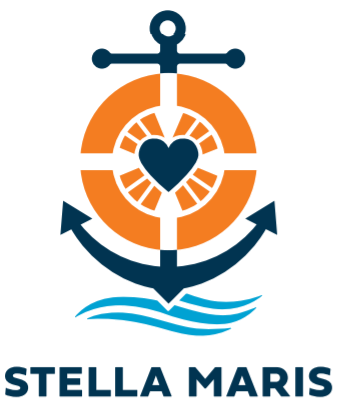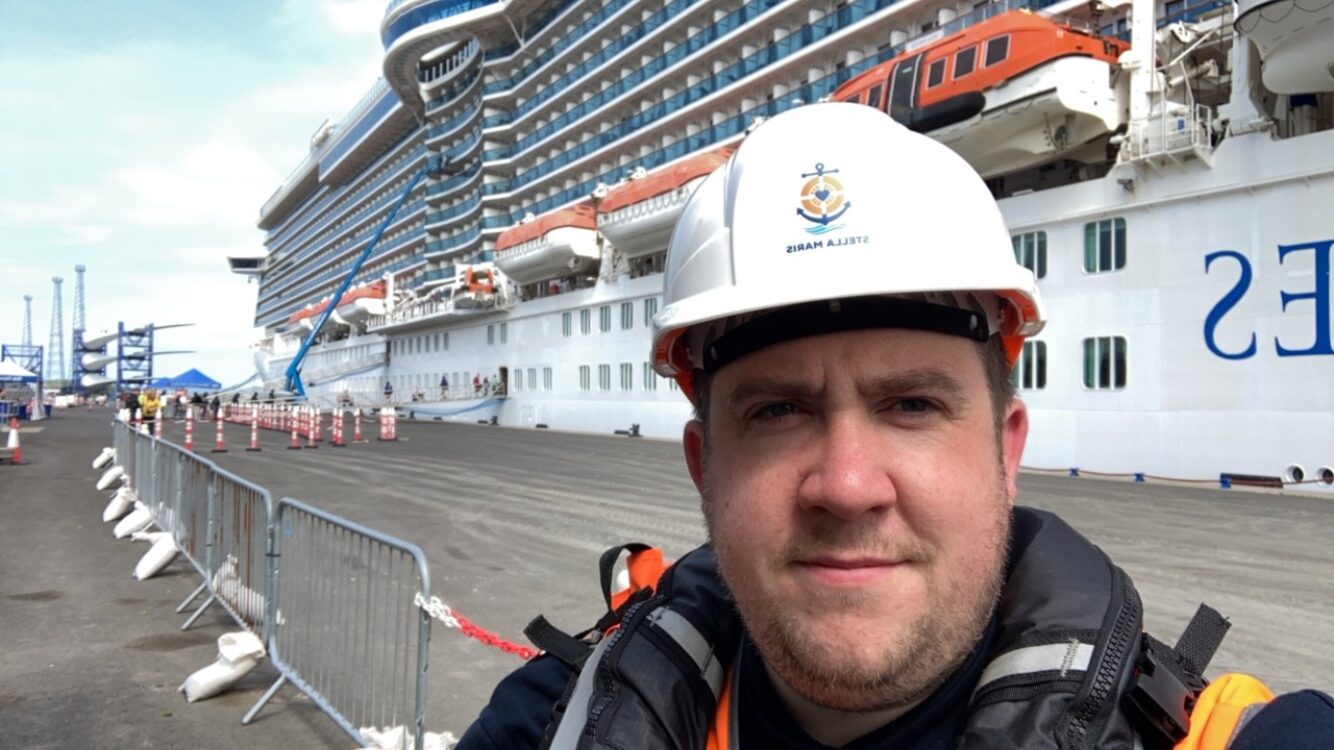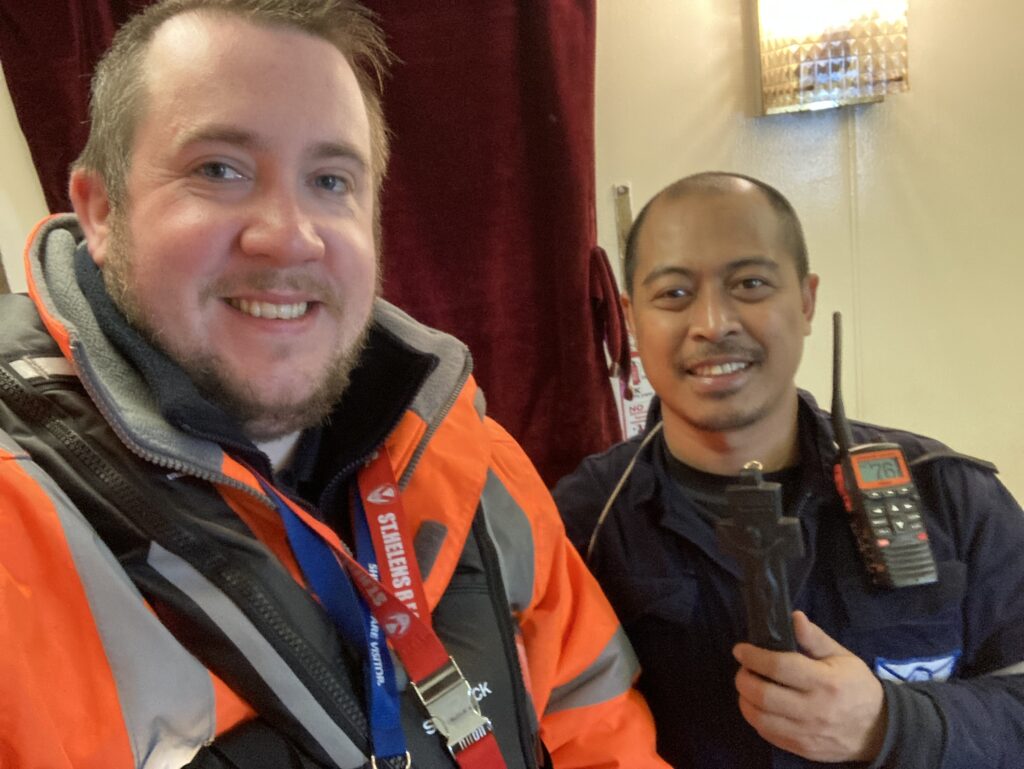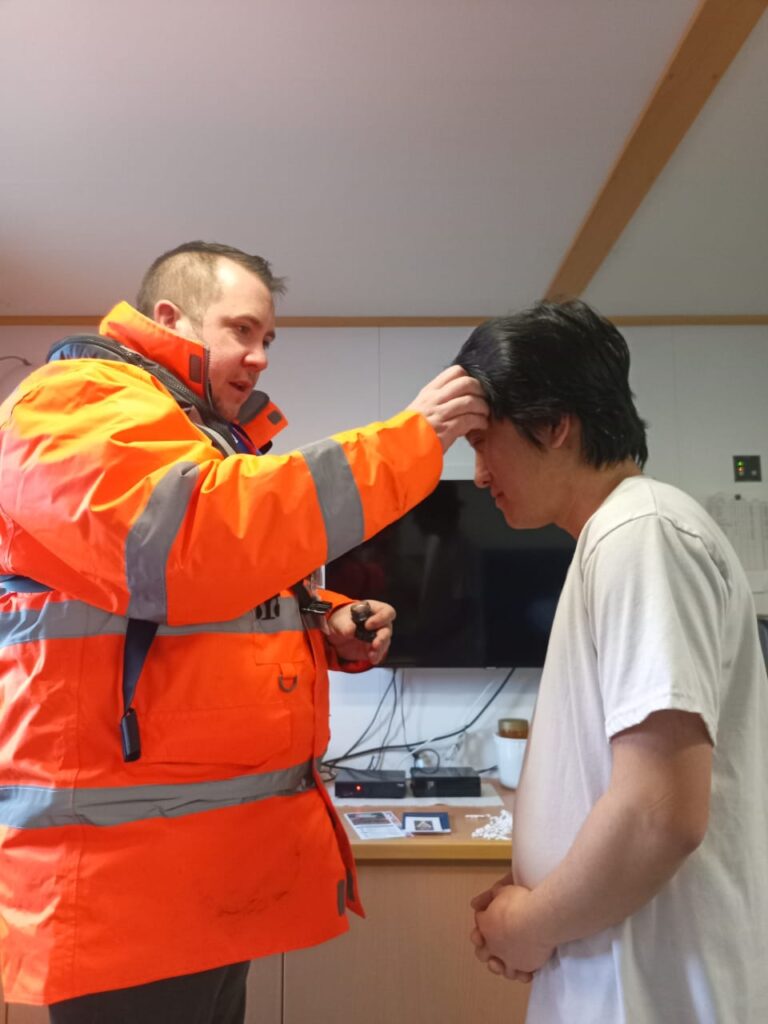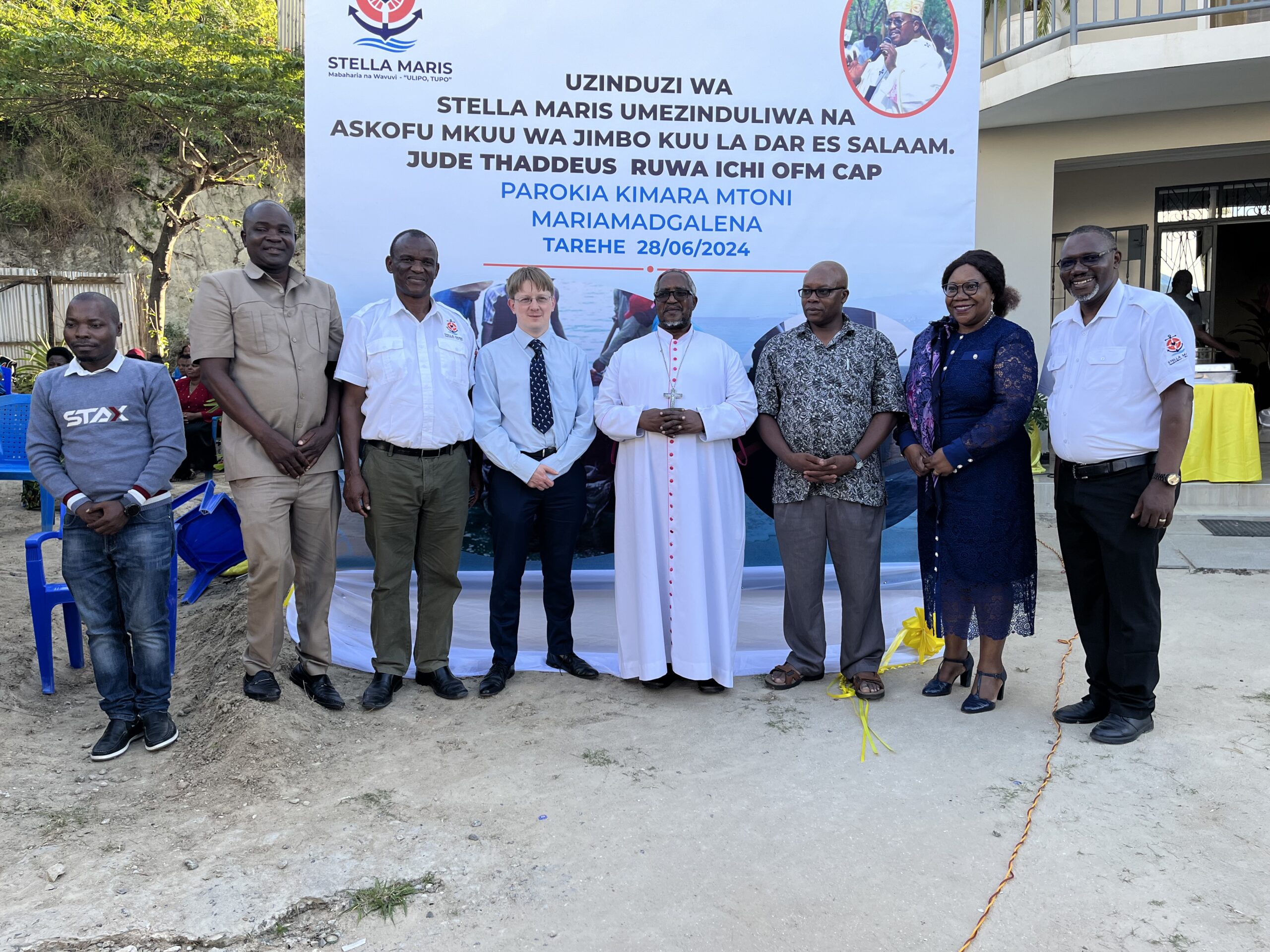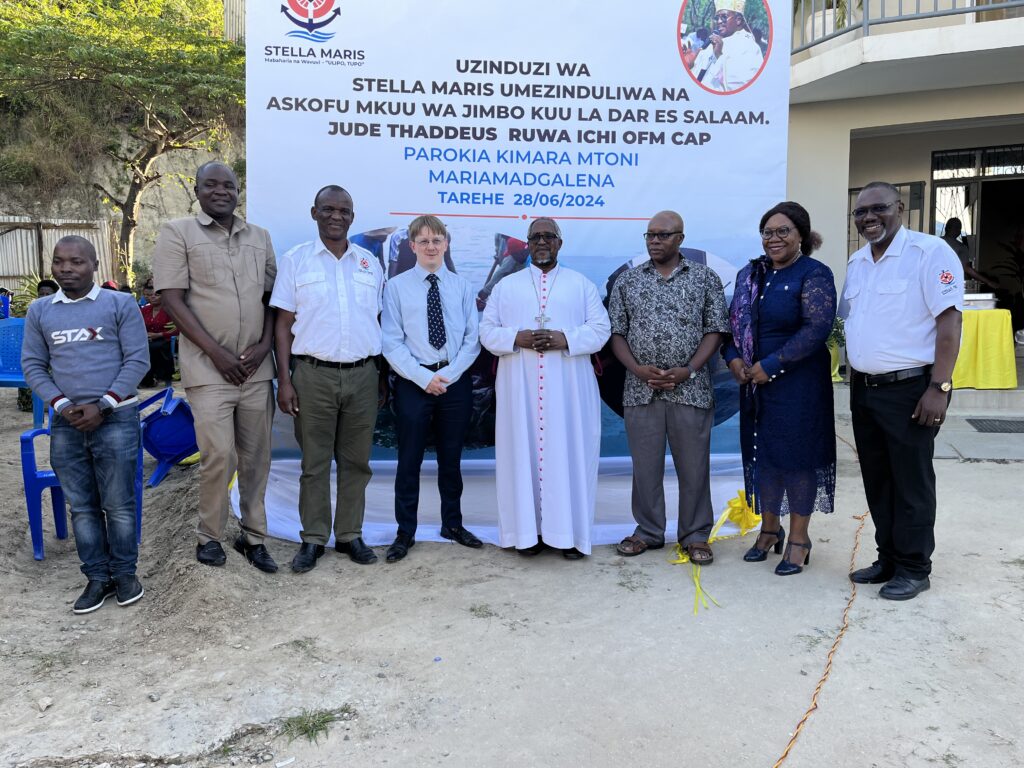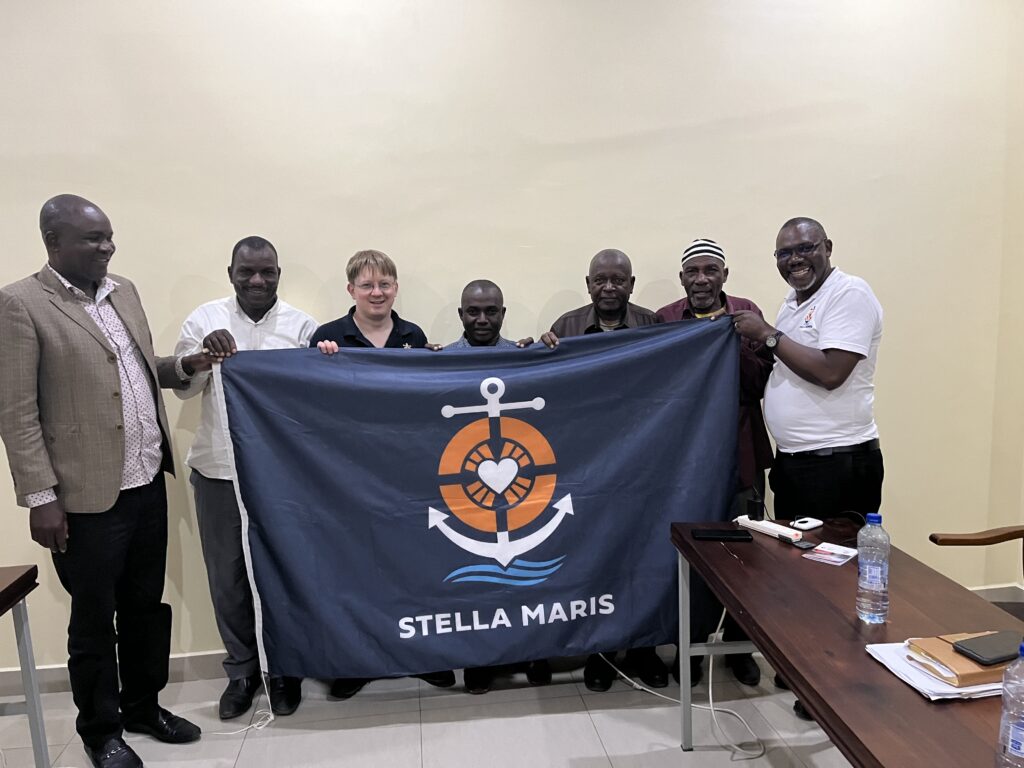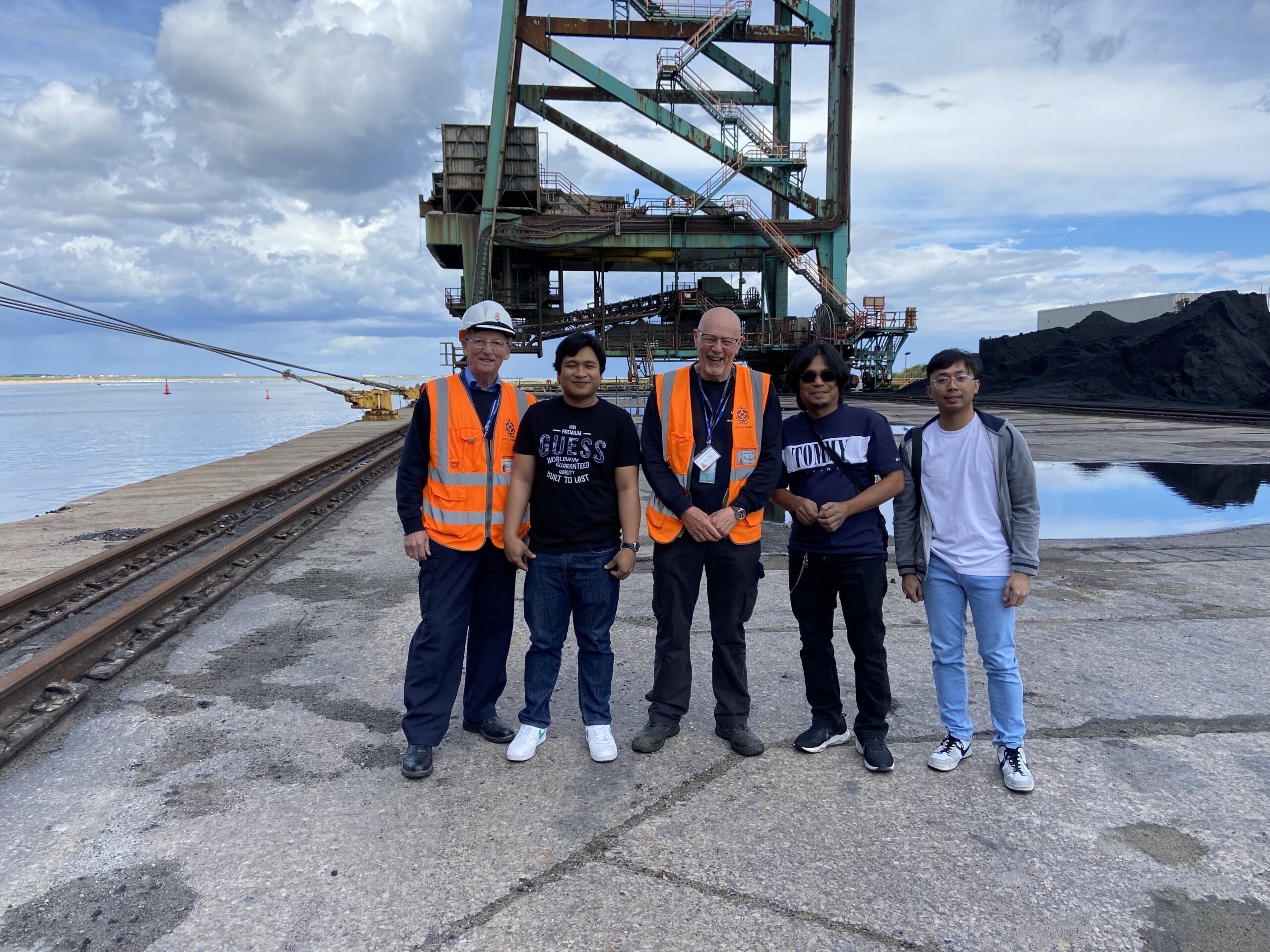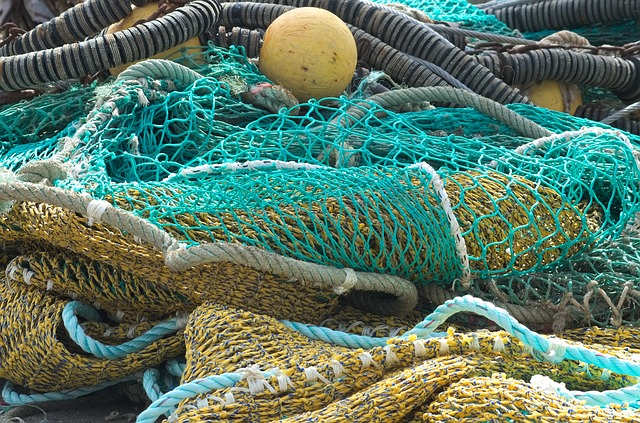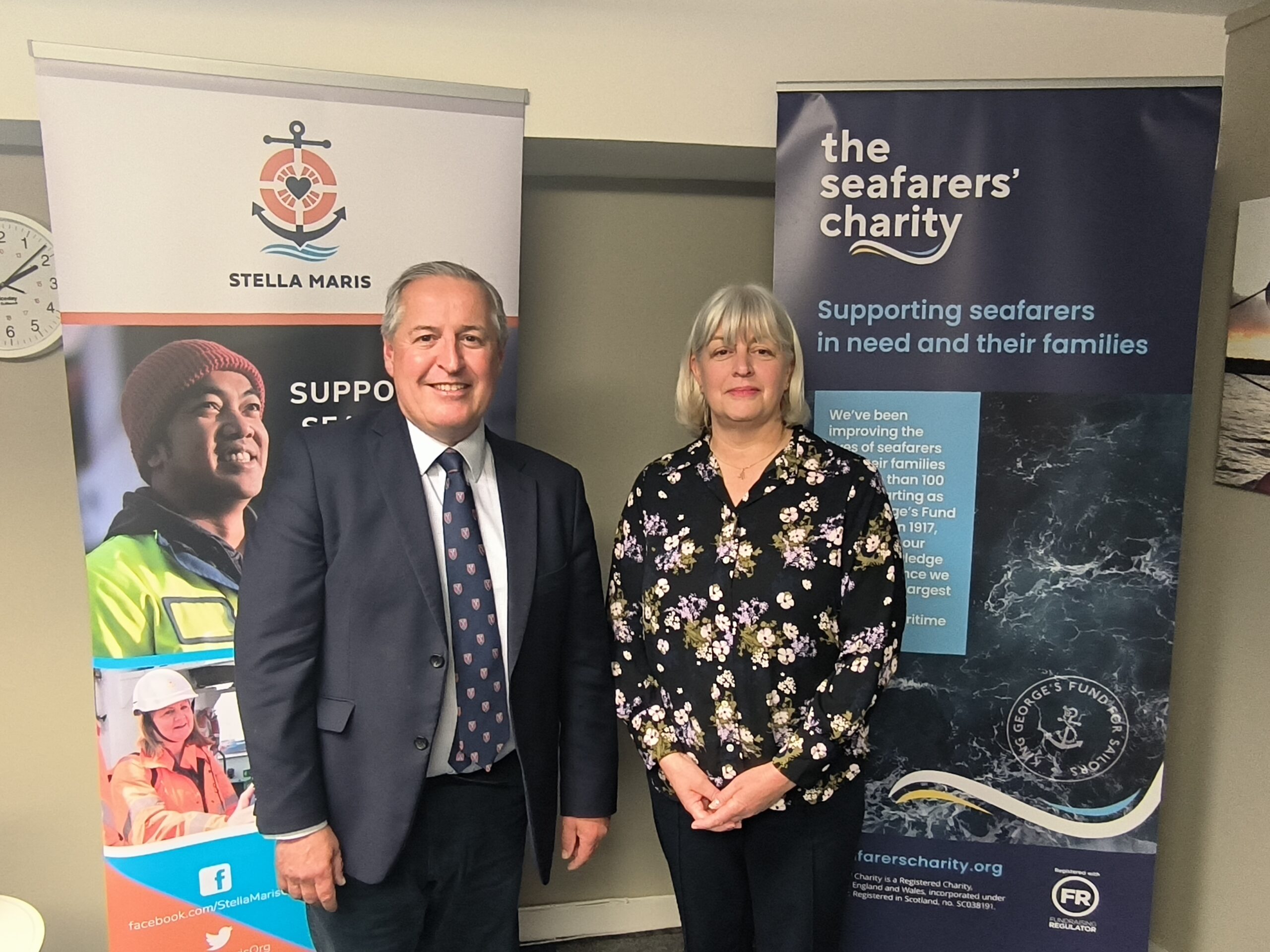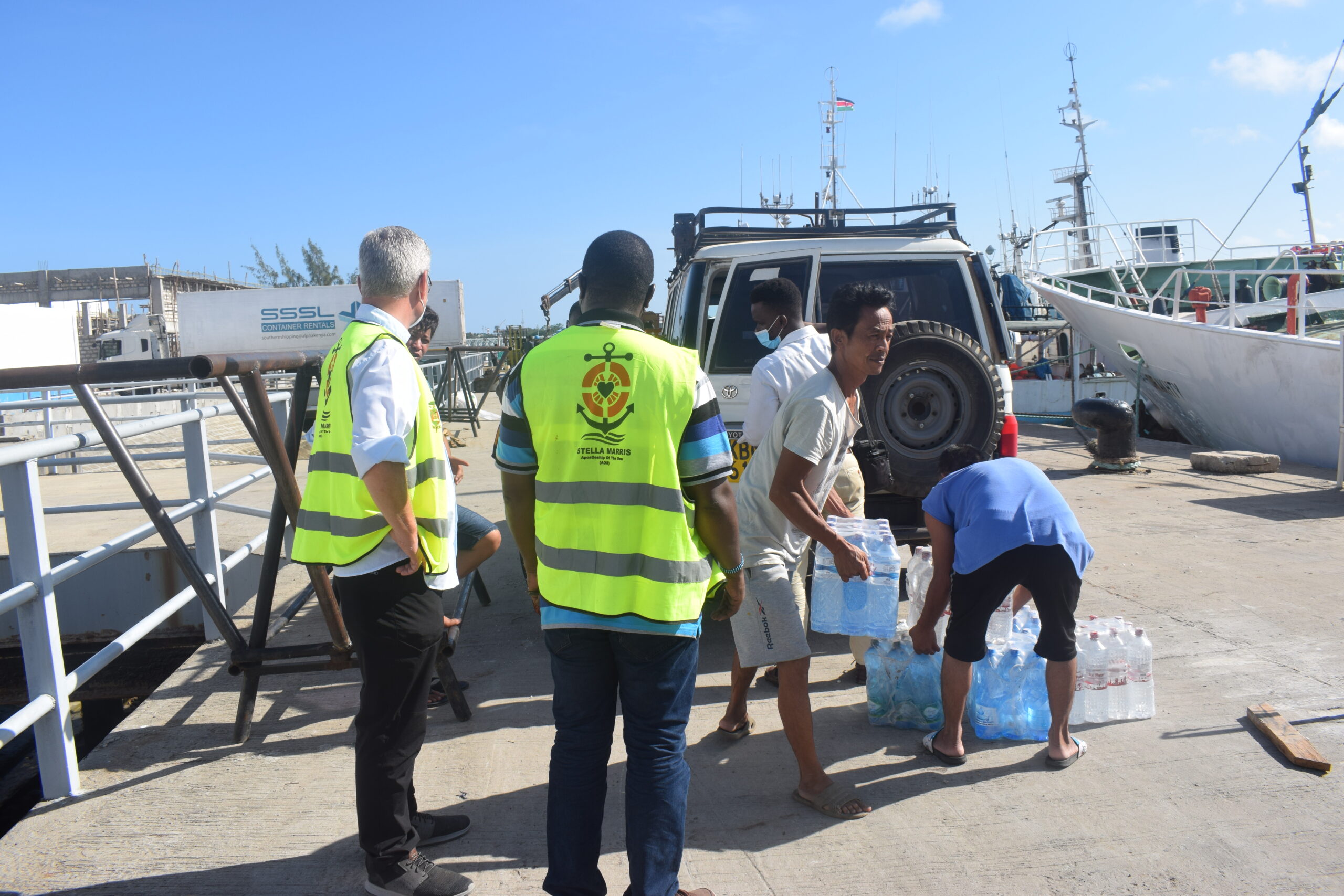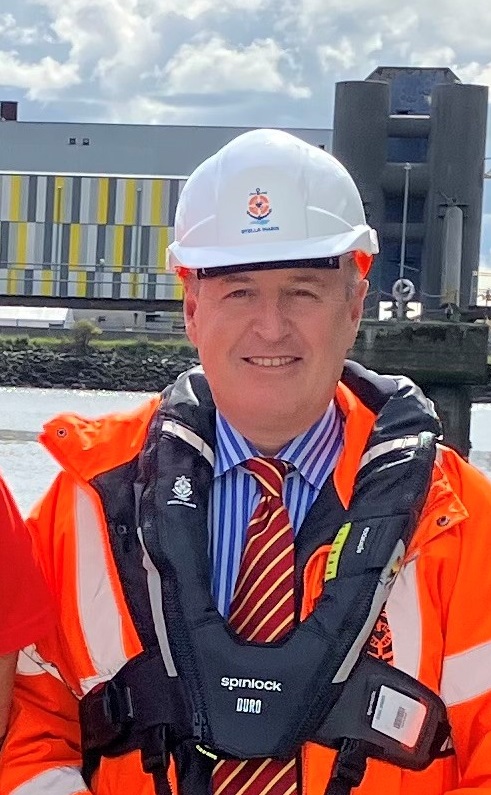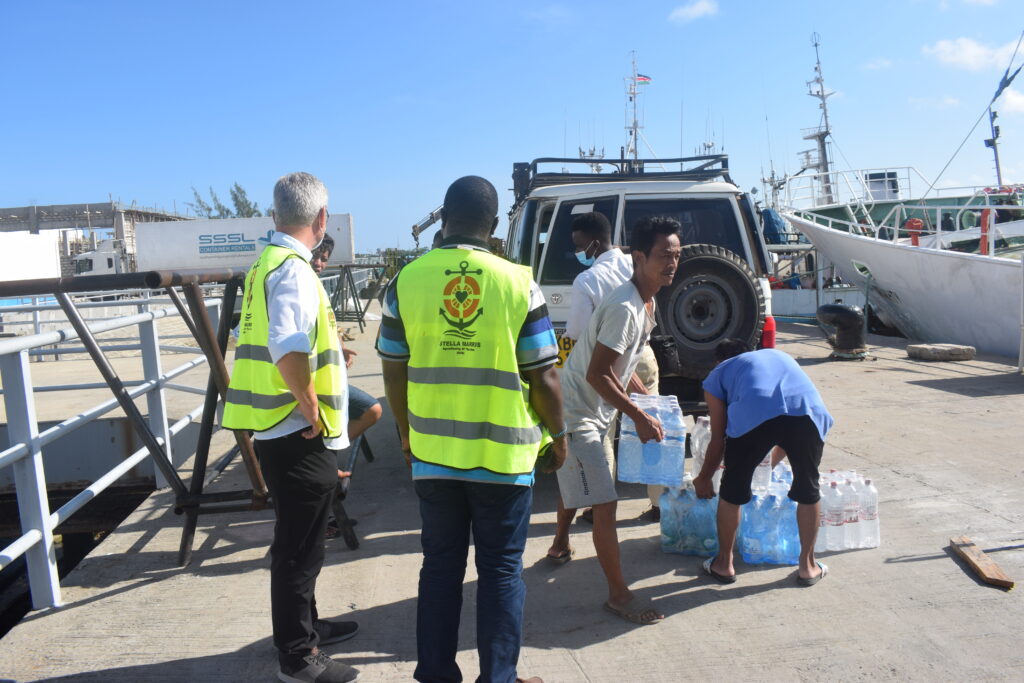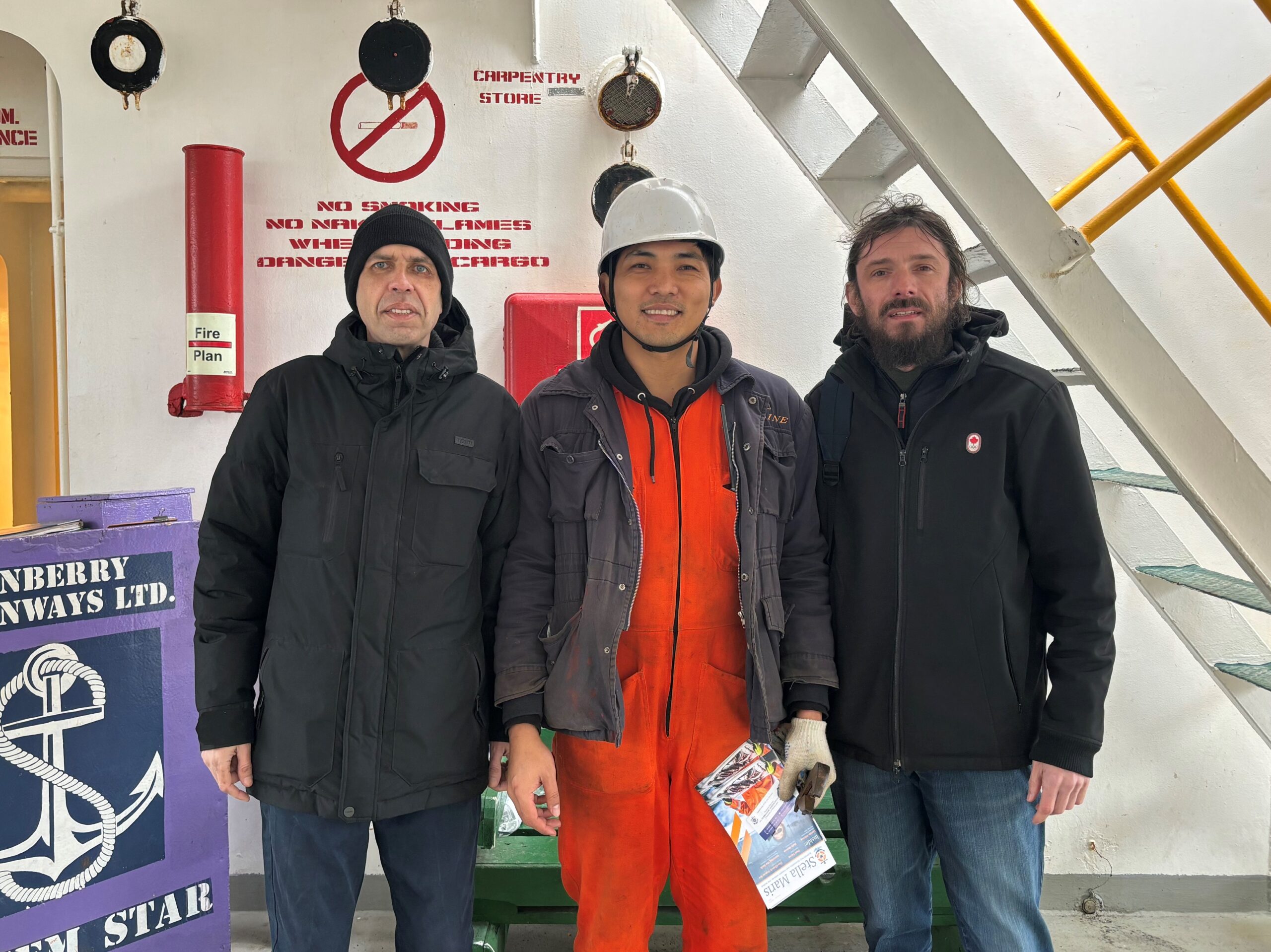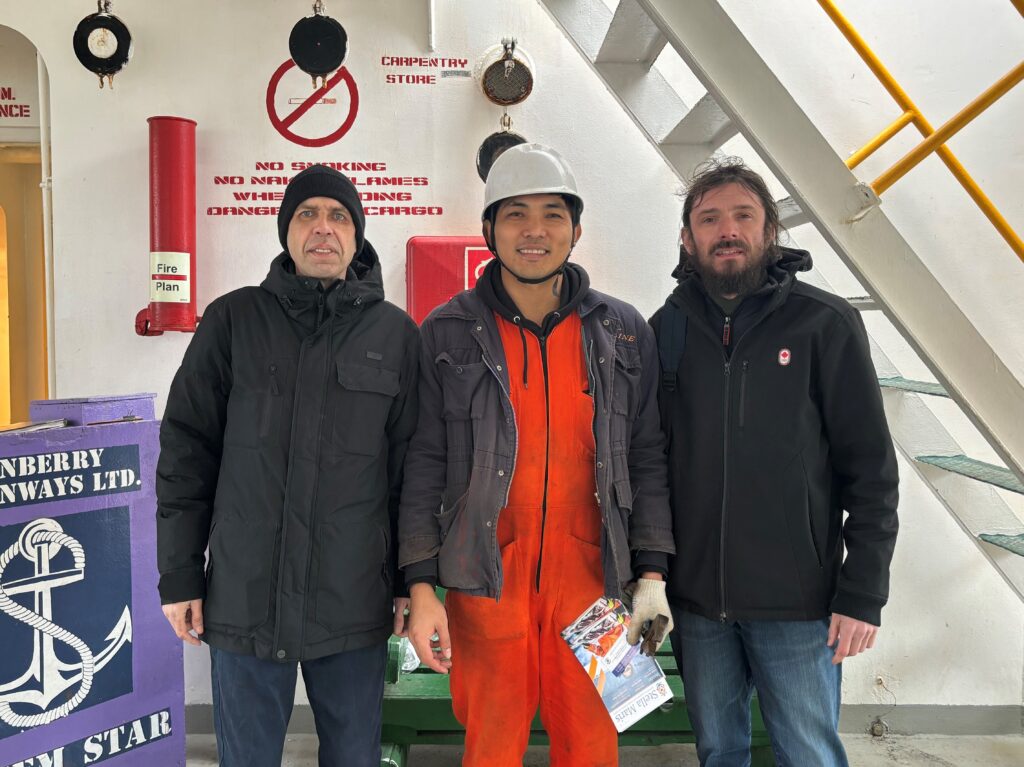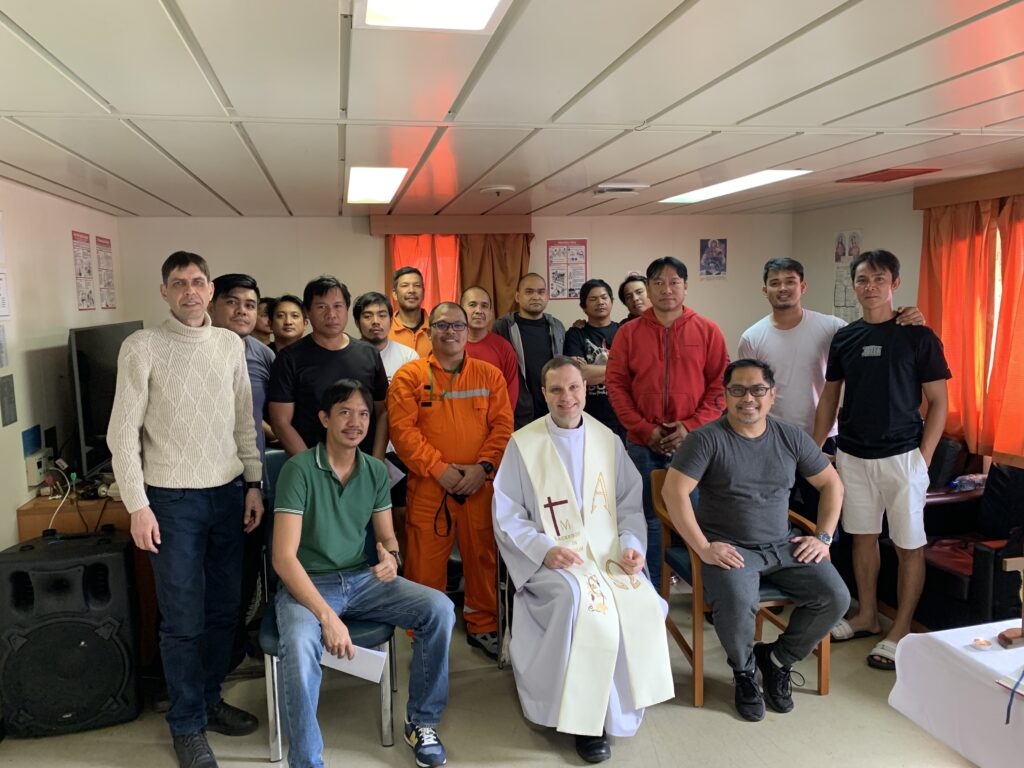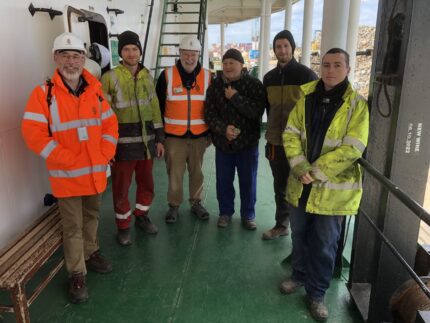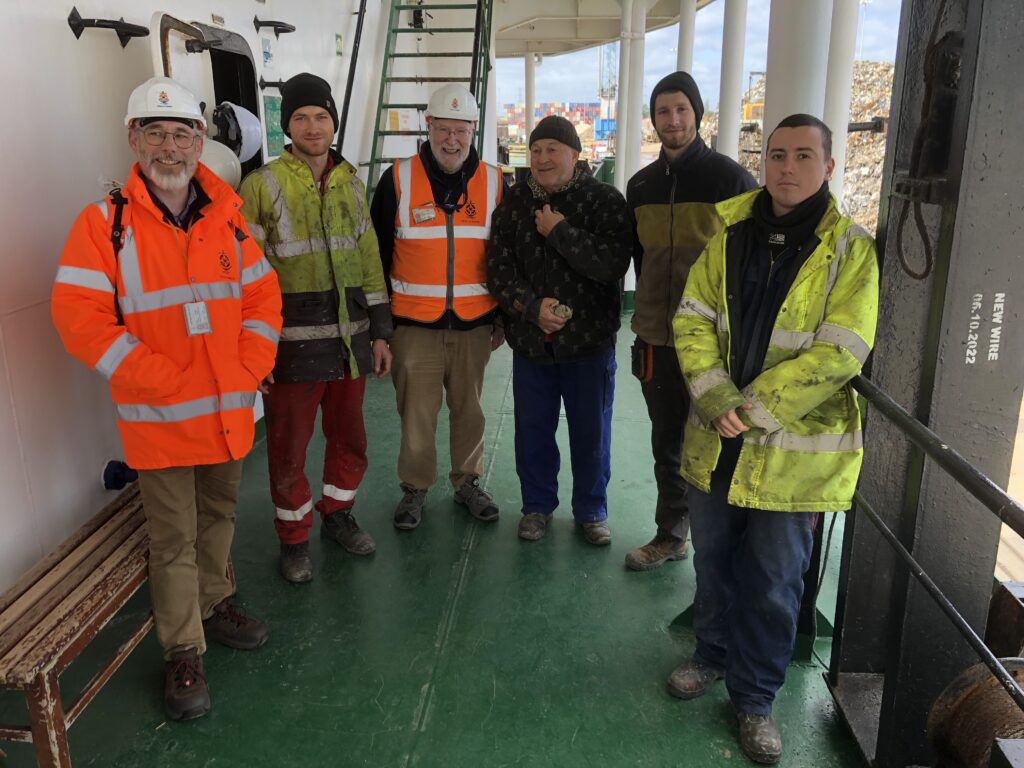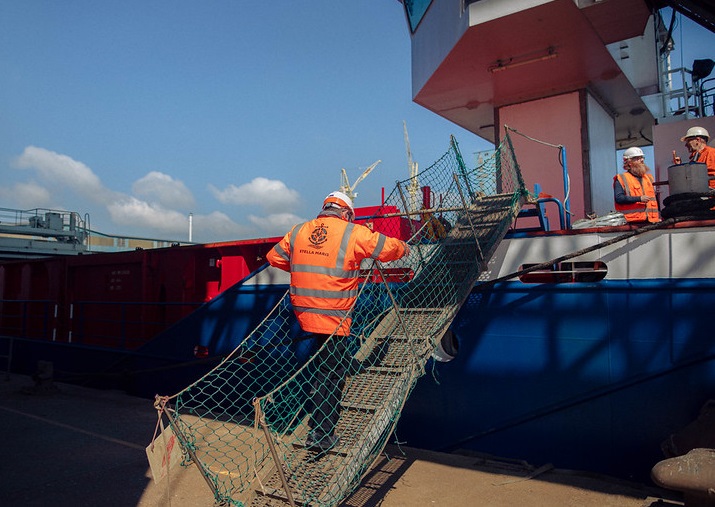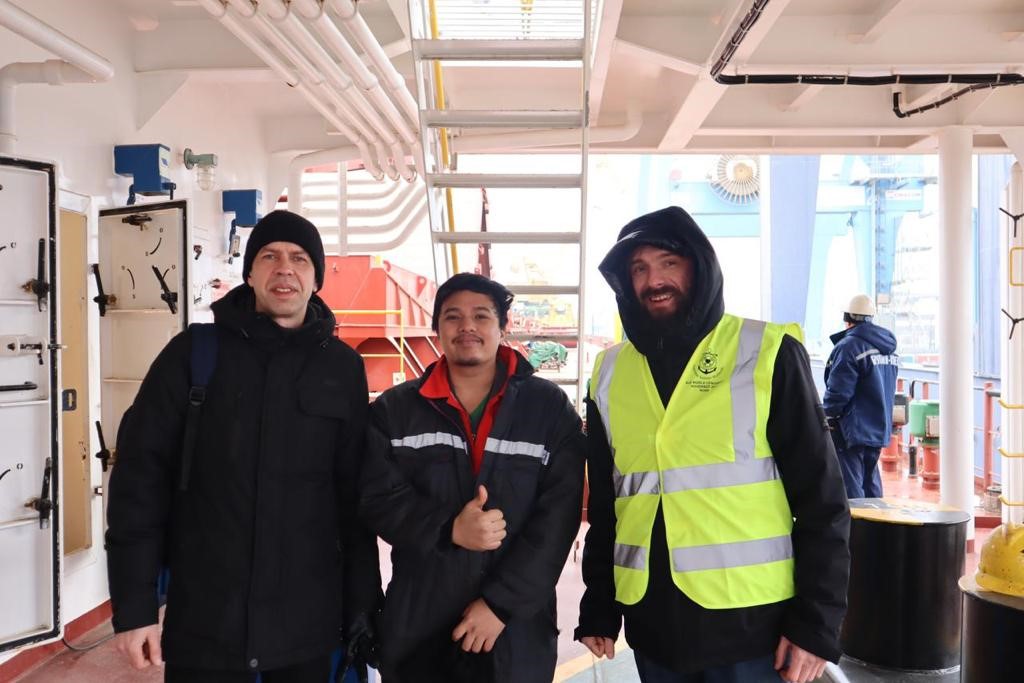
- Stella Maris will fund support for seafarers in Odesa for as long as it is needed.
- UK corporates Baltic Exchange Charitable Foundation and UK P&I Club step up to provide urgent financial support.
- Ship crews navigating Russian Black Sea threats face extreme pressure.
- Ukrainian seafarers and families face financial hardships.
Leading maritime charity Stella Maris is committing funding “for as long as it takes” to provide urgent support to the thousands of seafarers in Ukraine and those regularly making the perilous journey to and from its Black Sea ports.
Seafarers working on vessels that have to navigate Russian threats through the Black Sea face numerous challenges, not least mental health issues associated with life-threatening risks.
And in Ukraine itself, seafarers have not been able to work for more than two years because of the country’s wartime rules, often creating financial hardships.

Stella Maris Odesa port chaplain, Fr Alexander Smerechynskyy, and Rostyslav
Inzhestoikov, assistant port chaplain, with a seafarer.
“There is a long-term need to support seafarers in Ukraine and we have committed to cover the core running costs of the Stella Maris team based in the Ukraine Black Sea Port of Odesa for as long as it takes,” said Tim Hill, the charity’s CEO.
“We are providing active support and sending a clear message of solidarity that the maritime sector has not forgotten Ukraine nor the issues seafarers are facing.”
Companies in the maritime industry are already stepping up to provide funding. UK P&I Club and Baltic Exchange Charitable Foundation have together provided sufficient funds to cover the Odesa team’s core running costs for 2024.
“We are very grateful to these two organisations, which have identified the urgent need for ongoing support after two and a half years of war,” said Ian Stokes, Head of Corporate Engagement and Partnerships at Stella Maris.
“We are the only maritime charity team on the ground in Odesa and the support of Baltic Exchange Charitable Foundation and UK P&I Club enables us to provide a wide range of support from trauma counselling and ship visits to grants towards medication, heating and other household costs.”
Patrick Ryan, Sustainability Director and Head of Club Secretariat for Thomas Miller P&I Ltd said, “The UK P&I Club recognises that war in Ukraine has increased the demands on Stella Maris to support seafarers operating in that region, whilst also harming the charity’s ability to raise funds locally. The Club is, therefore, delighted to be able to provide financial support to enable Stella Maris to keep up its vital work in Odesa.”
In addition to Ukrainian seafarers and their families, Stella Maris supports a large number of seafarers of different nationalities who come into Odesa and other ports.
“Often they cannot get off their ships because of the risk so we go on board and support them in any way we can,” said Jonathan Heard, Head of Major Gifts, Stella Maris.
“Often what they need is just the ability to talk to someone they can trust. But these seafarers are under a lot of pressure. They are working in a war zone. Some will witness missile and bomb explosions nearby; others will see armed drones. In these situations, we regularly see an uptick in the need for faith and spiritual support as well as trauma counselling, which we also provide.”
* Words by Polaris Media

